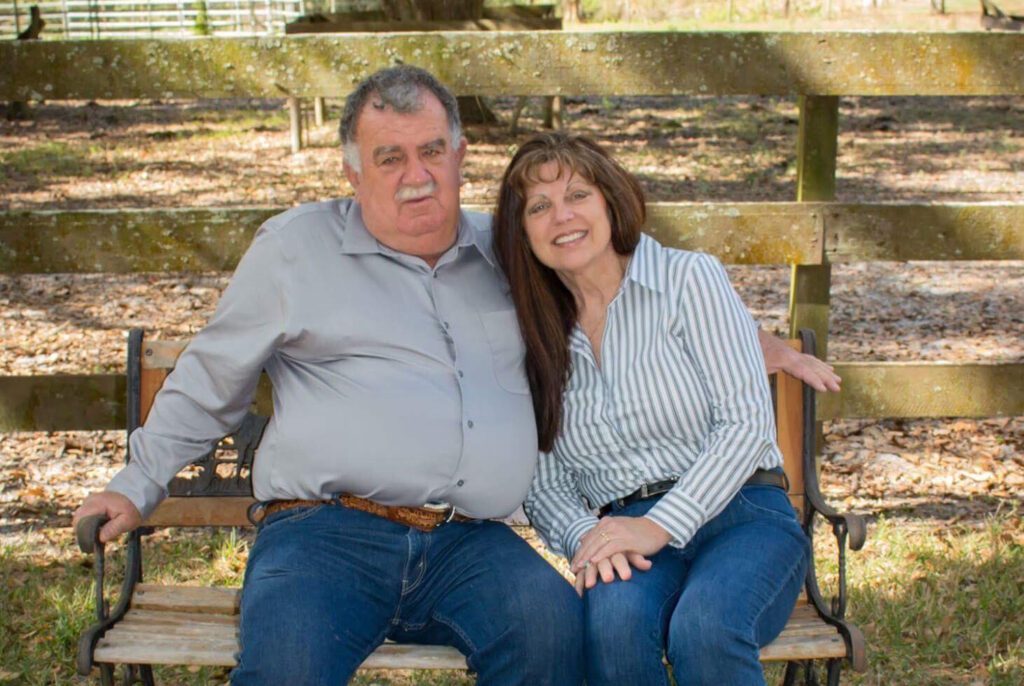Beleaguered Lakeland Dairy Farm Among Many in Struggle to Survive Virus Fallout
by MARY TOOTHMAN
The H.C. Dairy has seen hard times before.
Like most farming operations, the family-run dairy farm operated by Mike and Freda Carey has struggled to make ends meet. Built roughly 100 years ago, it is thought to be the last remaining commercial dairy farm in Polk County. Somehow, they have managed to stay afloat, but just barely, they say.
What may finally take them down is something no one saw coming but we are all too familiar with now: Covid-19.
Customers are hurting and will be hurting even more in days to come. With schools closed, milk doesn’t go to lunchrooms. When restaurants close, there’s no call for milk.
And the demand for milk had already dropped considerably, she says. People just do not drink milk the way they used to.
The trickle-down effect continues.
She worked for a dental practice, and the governor mandated that dental offices close and only see patients for emergencies.
It is a tough time of life for the couple to face the uncertainty of the current agriculture status. He is 68; she is 61. “We do not have a 401(k),” she says. “This is all we have, it’s all we’ve got.”
And what they have is 150 cows — down from 900 at the farm’s heyday — and the acreage the dairy sits on. They have money tied up in machinery, which could be sold off if it came to that.
The dairy has not made a profit in the past 10 years, she says. “All of agriculture is hurting badly,” she says.
Business began to dwindle at H.C. Dairy after it was battered by two of the 2004 hurricanes — Frances and Jeanne.
Then an EF2 tornado went through North Lakeland and hit the dairy hard on October. 18, 2019.
The insurance coverage the farm had for its structures was cancelled after that, and a new policy has not been obtained.
Exactly how much of the wrath of Mother Nature can one dairy farm endure? The Careys are wondering themselves.
The four remaining employees of the dairy know their jobs are up in the air. “They do know, though, that as long as we are still milking, they have a job.”
At one point, they had about 20 employees.
It has been really tough on her husband to watch the dairy decline, she says. He’s put his entire life into farming and it’s not easy to watch things continue to deteriorate — and be unable to stop it. “This has been his whole life, the agriculture business, dairy farming.”
National reports in recent weeks have shown dairy farmers being forced to dump milk on the ground. In Wisconsin, farmers have said the coronavirus pandemic has set them back so far the USDA will have to help out if the industry is to survive. According to the Florida Dairy Farmers, most Florida dairy herds range in size from 150 to 5,000 cows. There are about 125,000 dairy cows in the state that produce about 300 million gallons of milk annually. Each Florida dairy cow produces about six to eight gallons of milk daily, and is milked two to three times a day.
Florida’s dairy farms are primarily owned and operated by second- and third-generation farmers.
Back in the day, the H.C. Dairy cows produced about 6,000 gallons of milk a day.
The future of the dairy remains up in the air. Mike Carey, for the most part, was not up for talking about the state of his farm. But before handing questions over to his wife, he pointed out that with the virus taking away lives, whether the farm makes it might not be the primary concern.
For now, they know they still have to get up and milk the cows at 4:30 every morning and again at 4:30 in the afternoon. That cannot be put off. And they will just have to take things day by day.
“I do not know what the future holds,” she says. “We are going to keep on milking as long as we can.”

